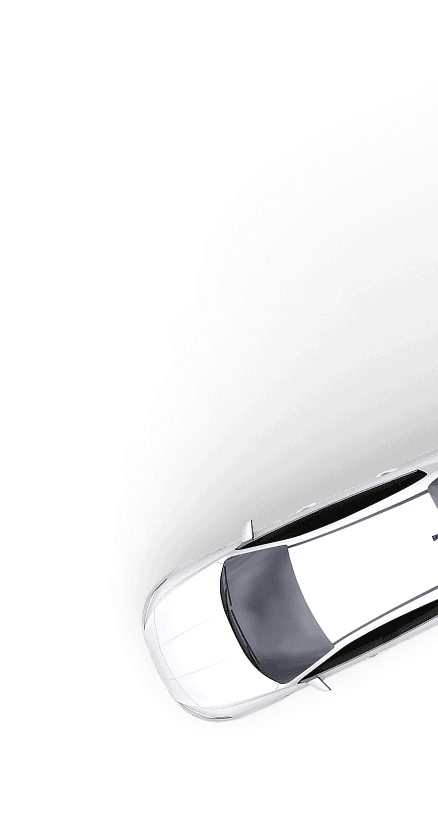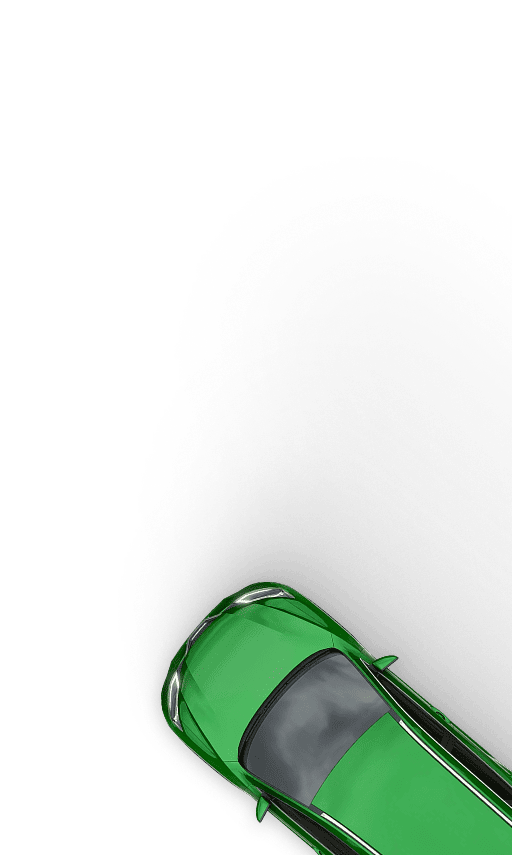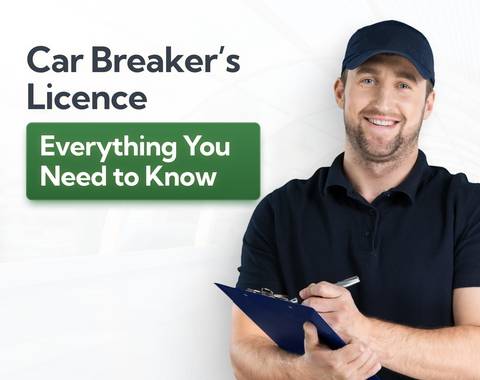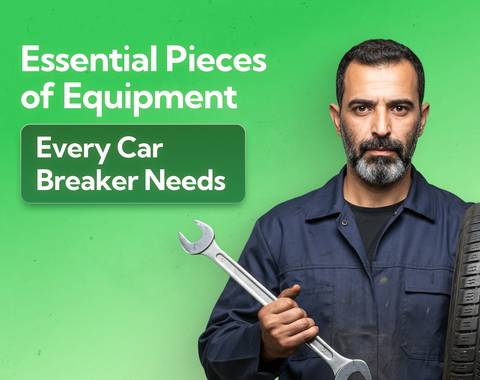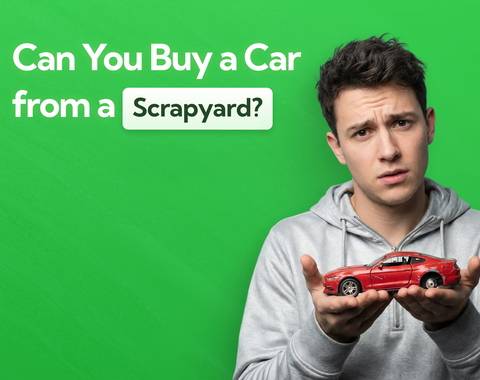How Do I Scrap My Car?
Scrapping your car in the UK is easier than most drivers think, but you need to follow the right steps. From getting a quote and arranging collection to notifying the DVLA and receiving your Certificate of Destruction, this guide explains the full process to scrap your car legally and safely.
Last updated: 6th October, 2025

Anthony Sharkey is COO at New Reg Limited (Car.co.uk, Trader.co.uk, Garage.co.uk), driving innovation in vehicle recycling, logistics, and customer experience.
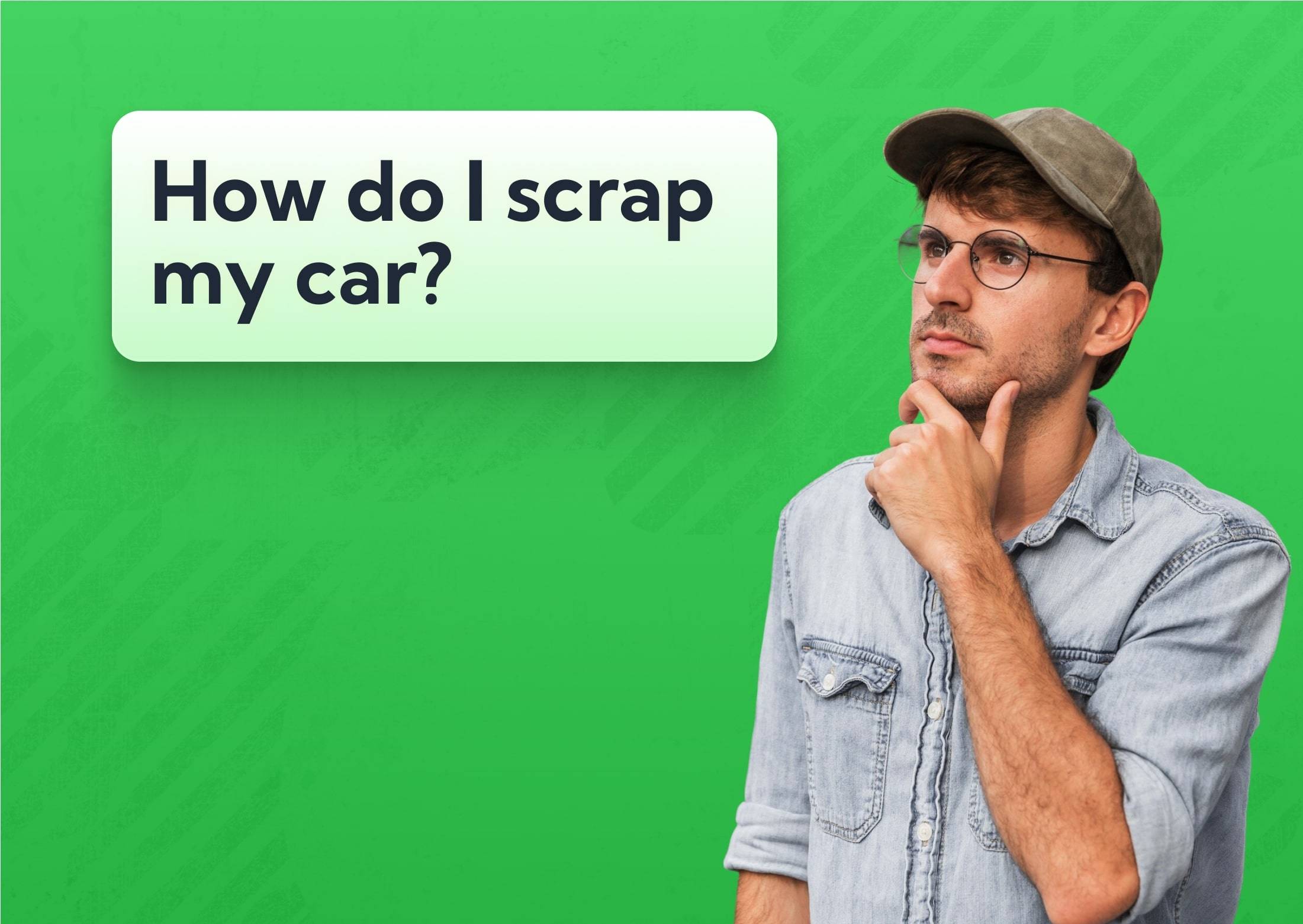
Listen to this story
Whether your vehicle has failed its MOT, been written off or is simply too costly to keep on the road, scrapping it is usually the most practical and hassle-free solution. And best of all, you can have the car gone as soon as today.
To do it properly, you’ll need to use an Authorised Treatment Facility (ATF), complete the DVLA paperwork correctly and of course make sure you get a fair price.
In this guide, we’ll walk you through each step, showing you the fastest and easiest way to scrap your car.
What's in this article
Scrapping your unwanted car isn’t a difficult process, but to do it successfully, you’ll need certain documents and to follow a few simple steps correctly to avoid breaking the law or paying unnecessary fines.
How to scrap a car
If want to know how to sell a scrap car, you’ve come to the right place. Here, you’ll find answers to a variety of questions commonly asked by people who are planning to dispose of their vehicles. From what to do if you need to scrap a car with no keys to understanding the paperwork required to complete the task, we’ve got the information you’re looking for. Car.co.uk also offers a great vehicle recycling service if you are looking to scrap your car today.
How long does it take to scrap a car?
Scrapping a car can be far quicker than selling one. It can take you a matter of minutes online to arrange for your vehicle to be scrapped at an authorised treatment facility (ATF) and depending on how busy the scrap yard is, you may be able to get them to pick up your vehicle in a matter of days. After your vehicle has been scrapped, you’ll be sent official documentation that proves it’s been disposed of, this is called a Certificate of Destruction (COD). The certificate will be sent to you within seven days from the date your car was scrapped.
What the experts say

William Fletcher MBE
How do I scrap my car?
To scrap your car, you must first gather your documentation. You’ll need to provide the ATF with photo ID, proof of address and your V5 logbook if you have it. If you’d like to keep your licence plate, you should make an application to do so before you scrap your car. Retaining your licence plate carries a charge of £80.
Next you should contact ATFs close by and ask for quotes, compare the prices offered for your vehicle and then select a facility to dispose of your car. Try to choose one close to where you’re based for the best price. Your car can only be scrapped at an ATF; to do so anywhere else is a criminal offence punishable by large fines. Alternatively, use our fantastic service on Car.co.uk where you can get an instant scrap car quote and know that your vehicle will be recycled by an established ATF. When you’ve settled on a guaranteed price, you can book your vehicle in to be scrapped on a specific date. Choose between dropping your car off at the ATF or arranging for them to collect it from you. If your car is unsafe, uninsured or untaxed, under no circumstances should you drive your vehicle to the scrap yard as this is illegal.
Make sure that you only accept payment by either a bank transfer or a cheque. To accept a cash payment for a scrap car in England and Wales is against the law. The ATF will send your Certificate of Destruction within seven days of scrapping.
If you’ve got your V5 registration document, give this to the ATF but retain the yellow section labelled “Sell Transfer” and send it to the DVLA. If you don’t have your logbook, write to the DVLA and inform them that your car has been scrapped. List your details, your car’s registration number, model and make. Include the name and address of the ATF where your car was disposed of and state the exact date when the vehicle was scrapped.
It’s against the law not to inform the DVLA that your car’s been scrapped, with fines of up to £1,000 payable. If you miss any of the above details from your notification, it can be rejected by the DVLA, so make sure you double check your submission before sending it.
What documents do you need to scrap a car?
To scrap your car, you’ll always be required to produce photo identification such as a valid driving licence or passport and proof of where you live, like a current household bill with your address on it. Copies of these documents will be kept on file at the ATF for a term of three years. These are legal requirements under the Scrap Metal Dealers Act of 2013. This legislation was passed to prevent dishonest transactions by unscrupulous scrap dealers and to discourage vehicle-related crimes.
If you’ve got your copy, a V5 registration document can simplify the procedure of scrapping your car by reducing the red tape. If you don’t have your logbook you can still scrap your car, but you’ll need to inform the DVLA of its disposal by post.
After your car has been scrapped, the ATF will then issue you with a Certificate of Destruction for the DVLA.
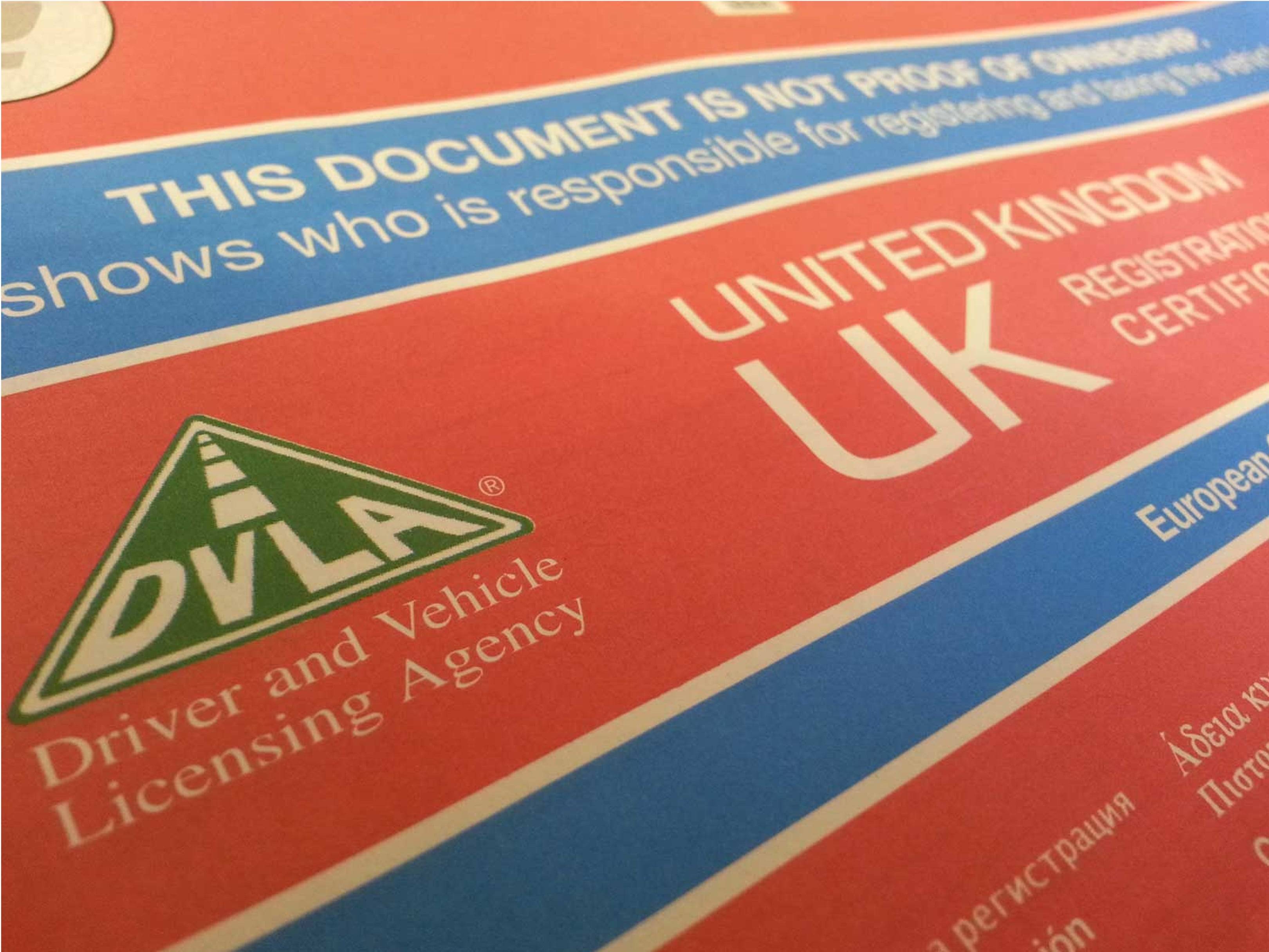
Can I scrap my car without keys?
You can still scrap a car you don’t have the keys for, but you’ll need some paperwork proving ownership and there may be additional costs. If you’ve lost the keys to your car, the ATF will need to see proof that you’re the car’s owner. Typically for this, you’ll need to produce your V5 registration document, but if you’ve misplaced this as well, you’ll need alternative documentation. In such cases, a bill of sale for the vehicle in your name will sometimes be required.
Bear in mind that additional costs to the scrap dealer because you don’t have your keys can mean the final payment you receive is less for your scrap car. Immobile, your car will need to be winched onto a truck - and smaller yards may not have this option. If the car is locked, the scrap dealer may have to break into the vehicle to put it in neutral if necessary or line the wheels up straight to move it. For this extra work, the scrap dealer will deduct funds from your final fee.
If your status as the car owner can’t be confirmed, it may be necessary for the ATF to run an HPI vehicle history check - the cost of which will also be subtracted from your payment.
How to determine the scrap value of a car
The scrap value of a vehicle is largely based on its weight, so as a rule the larger and heavier your car, the higher price it will command when scrapped. A big vehicle such as a Land Rover for example is likely to net you about twice that of a small run-about like a Ford Fiesta.
Just like when you buy a car, the price is affected by its age, make and model, so too is its value when scrapped. Sometimes you’ll find that a model which is costly to purchase as well as to run is also worth more when it is recycled. Typically, older models may command a lower price when scrapped then newer versions, but very old cars can contain rarer metals like copper and brass which are worth more than aluminium and steel.
The value of your car can also be affected by whether it’s complete or there are missing parts. If you’ve sold on components or kept them to repair another vehicle, the ATF will make a note of this. For each part missing from the car, a deduction will be made from your payment. A weighty item like an engine could drop your funds by over £60.
Where can I scrap my car for the most money?
With the value of scrap metal changing frequently, often daily, it’s difficult to predict the right time to scrap your car unless you’re an expert in the market. The best bet is to gather as many different quotes as possible and pick the one which is most lucrative.
Scrapping your car at an ATF close to your location can be beneficial when you’re getting your vehicle collected and want to maximise your payment. Scrap dealers will account for the distance they’ve had to travel to and from your location and factor this into your payment - so the less ground they have to cover, the better for your pay out.
Scrap yards sometimes offer better payments in the first half of the month than the second. They tend to price less competitively to reduce the month’s end influx of business, so if you can, book in early for a better deal. Always get a guaranteed quote from your chosen scrap dealer to avoid unforeseen deductions later and disappointment with your total payment.
How to check if a car is scrapped
The fastest way to find out if a car has been scrapped is an HPI vehicle history check. This comprehensive check will outline everything from whether a vehicle has been scrapped or written off to whether it has been stolen or has finance attached to it.
How to declare a car scrapped
To let the DVLA know your car has been scrapped, simply fill in the yellow section in your V5 logbook and send it to them. If you don’t have a V5 certificate, write to them by post and include your details along with your car’s make, model and registration. The agency will also need the name and address of the ATF you used and the date on which the scrapping took place. The ATF will send you a Certificate of Destruction within seven days of your car being scrapped.
About Car.co.uk
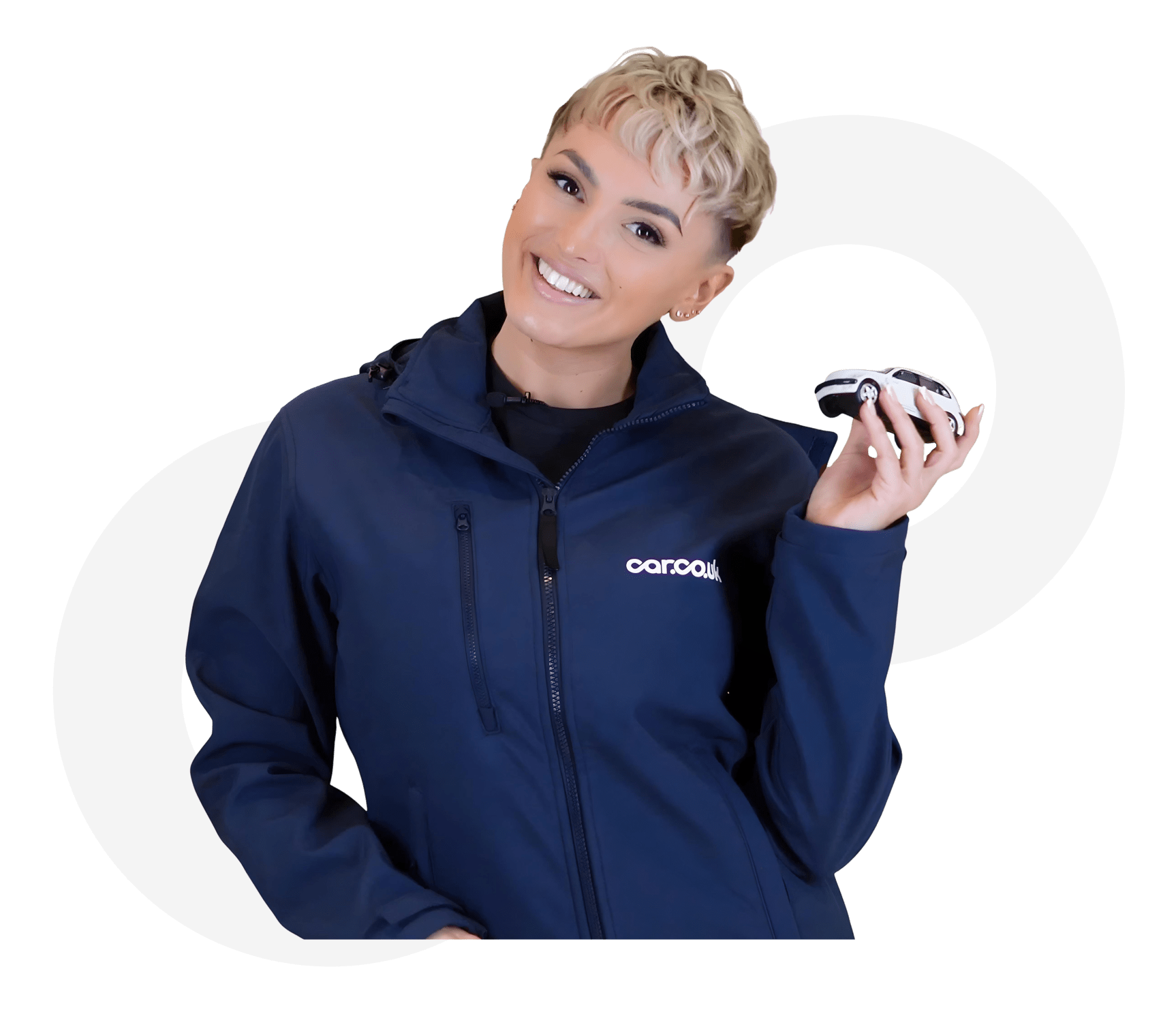
Share on
Latest news & blogs


